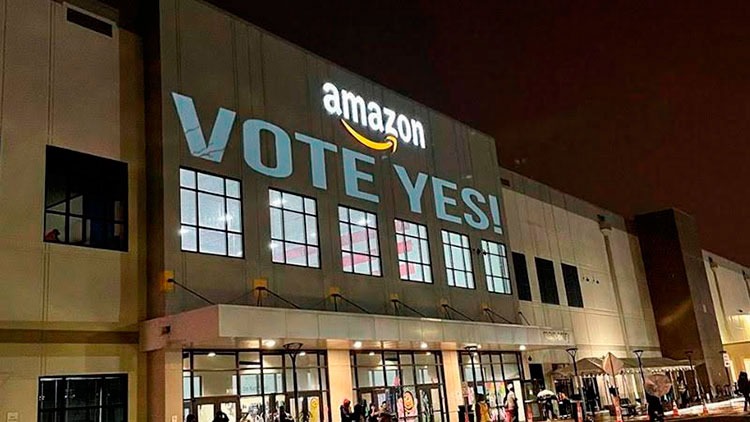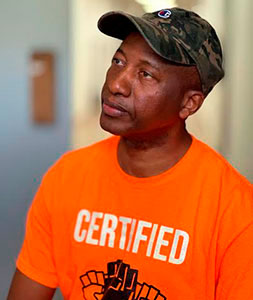In April 2022, workers at a giant Amazon warehouse on Staten Island, New York’s JFK8, formed the Amazon Labor Union (ALU), an independent union endorsed by the U.S. National Labor Relations Board (NLRB).

The multinational, with a notable presence in the labor market, is the second company with the largest number of employees in the United States, second only to Walmart supermarkets. During the Covid-19 pandemic, its profits made the founder and current CEO, Jeff Bezos, one of the wealthiest people in the world.
While that was happening, Amazon employees were getting sick and dying due to unsafe working conditions. In that context, they discovered that organizing in the form of unions could be the beginning of the change they needed. That is why several experts believe that the pandemic forced the rebirth of unionism, especially in the US.
Documents disclosed in 2023 claim that Amazon spent $14.2 million on experts to stop the JFK8 union initiative. The figure is considered «excessive», even by those who defend this common practice of large companies. Bezos’ argument is that he prefers employees to «raise their comments, questions and concerns directly with his management team» rather than face collective bargaining mediated by a union.
But the production routine at Amazon has peculiarities that favor exploitation and labor fluctuation. Warehouse employees, for example, are paid less than office workers, and these worlds do not mix. In theory, warehouse employees could apply for better paid positions, but they never get them, which is why the workforce there is renewed every 8 months: «The working day is simply unbearable,» say ALU leaders.
Two years after the historic creation of the pioneering union, other Amazon warehouses are seeking to follow suit, including some in Los Angeles, Alabama, and several cities in the United Kingdom, Canada, Italy and Spain. However, JFK8 continues to set the example and is currently organizing a referendum to reform union life.

The novel initiative, led by the ALU’s Democratic Reform Caucus, should be completed by mid-year and has Brima Sylla among the candidates to occupy one of the positions in the Executive Committee. The trade union leader recently attended the International Meeting of Solidarity with Cuba and against Imperialism held in Havana.
The leader was one of the thousand delegates to the event where some 220 organizations from 58 countries were represented. He emphatically condemned his country’s economic, commercial and financial blockade against Cuba, as well as the sanctions policy that hinders the development and welfare of the citizens of the Caribbean nation.
Sylla also spoke out on behalf of Amazon’s workers, who are overworked and subjected to exhausting and strenuous workdays, with hardly any time for rest. Some drivers and employees of the corporate logistics chain have denounced abusive delivery routes traced by artificial intelligence. The tool does not include rest breaks for physiological needs, but only optimizes routes in order to shorten time.
The vans are also equipped with geolocation systems and in-cab cameras, which have an intimidating and humiliating effect on the drivers. Solving these issues, as well as increasing wages and social benefits, are among the priorities of the union for which Sylla is fighting.
The Central de Trabajadores de Cuba (CTC)The CTC (Workers' Central Union of Cuba) was founded on January 28, 1939 by Lázaro Peña under the name Confederación de Trabajadores de Cuba (Confederation of Cuban Workers) is a benchmark for democratic unions, he told Trabajadores, a principle that does not exist in most U.S. unions. We have come to continue learning from you, just as we have done with the Cuban Labor Code for several years, he said.
«In this, my first visit, I have found a very different nation from the one portrayed by the media and some politicians in my country. Here, for example, I have not seen the number of people we have sleeping on the streets of Los Angeles, with more than 64,000 homeless people every night, or in New York, where the figure is much higher».
Cubans are a dignified people, he concluded. This confirms that the bargaining power of the unions continues to be the key to reducing social inequality, modernizing labor relations and democratizing companies and their union structures.